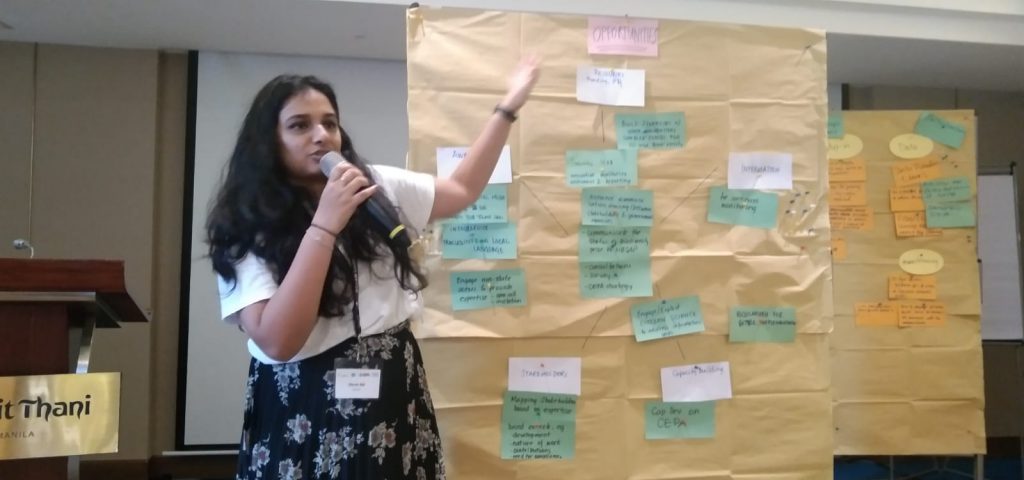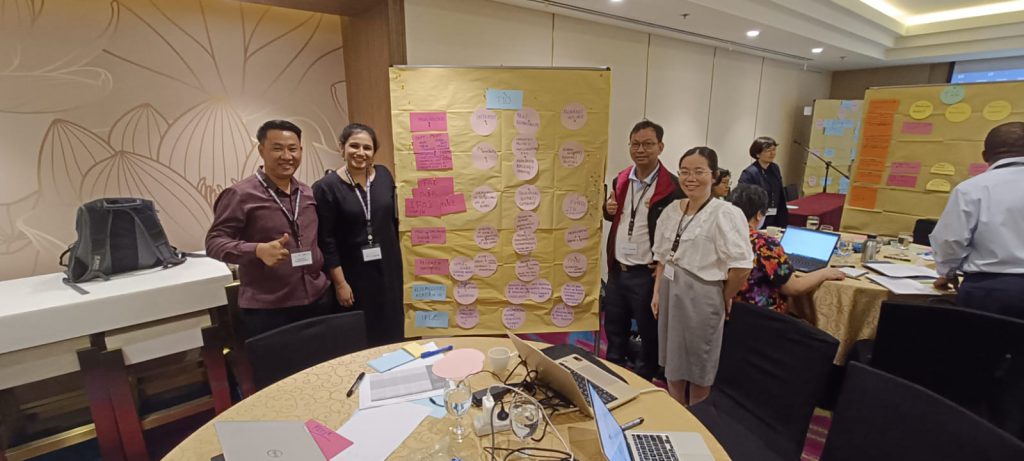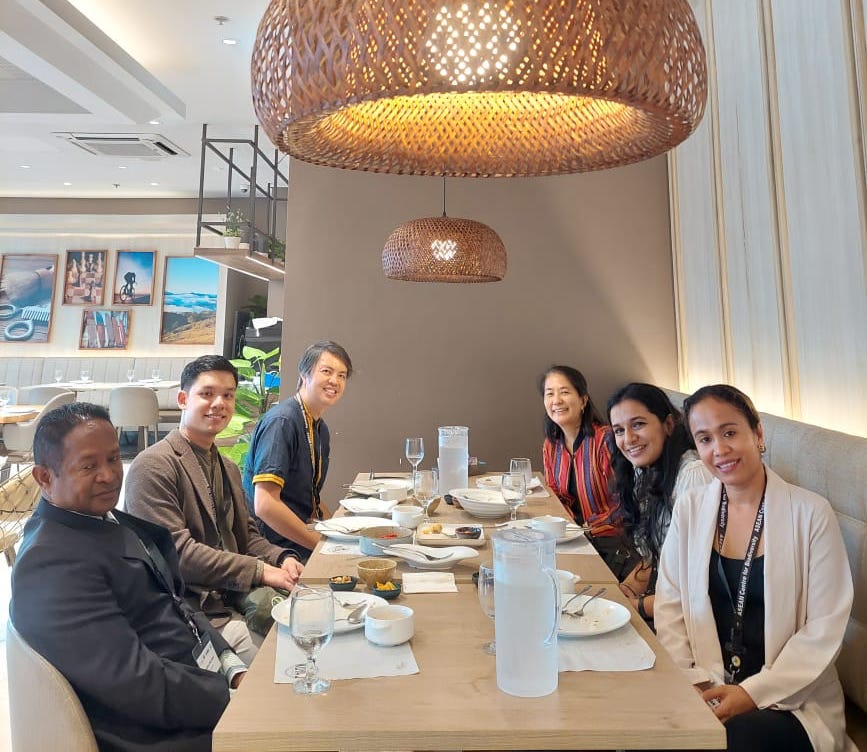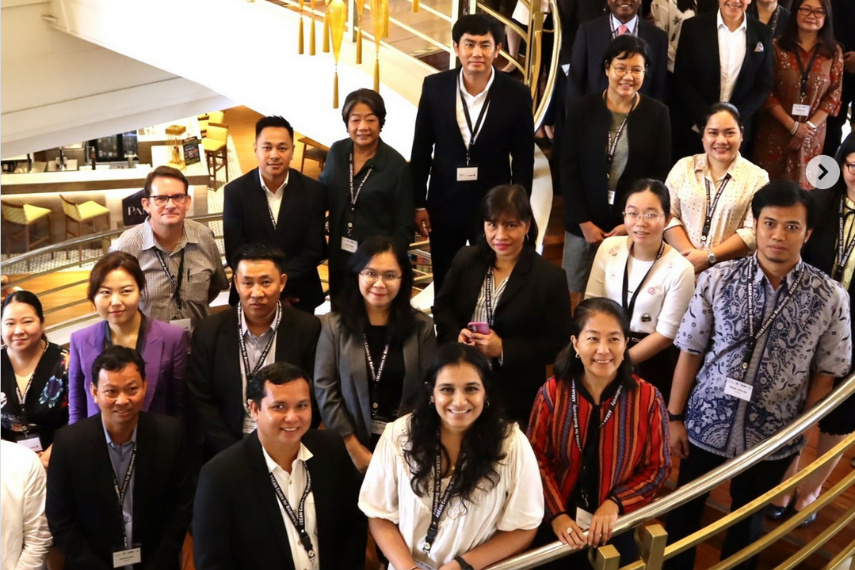COVER IMAGE: ASEAN Centre for Biodiversity
The first of the sub-regional dialogues to revise the National Biodiversity Strategy and Action Plans (NBSAPs) in consonance with the Kunming Montreal Global Biodiversity Framework (KM-GBF) took place between 14 to 17 August in Manila, The Philippines. The Government of Japan through its Japan Biodiversity Fund along with the Government of the United Kingdom of Great Britain and Northern Island had supported this meeting along with other regional meetings. Convened in collaboration with the ASEAN Center for Biodiversity, this meeting included the participation of focal points and representatives from ASEAN countries (Brunei Darussalam, Cambodia, Indonesia, Laos, Malaysia, Myanmar, Philippines, Singapore, Thailand and Viet Nam) and Timor Leste. Groups like youth, women, IPLCs and civil society were also invited to engage in this dialogue.
The discussions during the dialogue spanned over seven specific topics which were: Whole-of-society/whole-of-government approach, National Target Setting or Revision, integration of the provisions of the protocols (Nagoya and Cartagena) into NBSAPs, development of national monitoring plan, challenges and opportunities for the overall revision or updating of NBSAPs, capacity building and development planning and biodiversity finance. Some of the expectations from attending this dialogue were to build an understanding of how gender-responsive their current NBSAPs were and what were their key priority areas that they would want to focus on from the KM-GBF.

Prior to the meeting, all those who were attending the meeting as major groups (Youth, Women, IPLCs and Civil Society) as well as those who were engaged in NBSAP implementation in the ASEAN region developed a few strategies to ensure that the revision included human rights-based approach which was one of the key takeaways from the adoption of KM-GBF. The Women’s Caucus was provided a slot during the whole-of-society approach to deliver a five-minute statement which could not happen due to paucity of time. However, the statement was shared with all the participants of the workshops.
The overall workshop was a great learning opportunity to understand the various complexities of NBSAP implementation which is dependent on the scale and various prioritization of biodiversity Aichi Targets. While some of the existing versions of NBSAPs already reflect a few elements of a human rights-based approach including Free Prior Informed Consent(FPIC), recognition of community-based natural resource management areas, recognition of Indigenous Peoples and Local Communities in terms of protecting their traditional knowledge and local systems, and capacity building and leadership development of youth, women and IPLCs. While these are mentioned in their targets, there has been no means to ensure that these are sufficiently addressed through legally binding mechanisms through the adoption and/or amendments of biodiversity laws and policies that exist in a national context.
The breakout groups through the three days enabled us to interact and engage and share perspectives with Focal Points on the NBSAP implementation and challenges that have emerged in the past. Some of the challenges include lack of resources, both financial and human for monitoring and evaluation, limited multi-sectoral work aimed at biodiversity governance, lack of strong legislations that addresses rights of women, youth and IPLC and weak gender responsiveness within larger biodiversity governance.
Some of the key intervention towards gender responsive NBSAP revision that were put forth were, full and effective participation of women groups in the development of national targets and recognizing their contribution to biodiversity conservation and sustainable use, gender mainstreaming in NBSAPs in alignment withTarget 23 as well as the Gender Plan of Action, recognition of tenurial rights, monitoring through gender disaggregated data and gender sensitive indicators and gender specific budgeting.

It is imperative that countries start developing a proactive gender-responsive approach towards their NBSAP revisions as the inclusion of a gender perspective makes visible the different ways in which women and men use, preserve, know and participate in the management, protection, conservation and distribution of the benefits offered by biodiversity. The future steps post the dialogue is to proactively engage with the focal points to actively engage and participate in the revision, implementation, monitoring and reporting processes through outreach at the national level. This also would mean connecting relevant women groups engaged at the national level on biodiversity conservation, restoration and sustainable use to the relevant focal points for their equitable, full and effective participation.
The collective strength of participants from major groups(Women, youth, IPLC and civil society) enabled us to put forth a joint policy recommendation for transformative and inclusive NBSAPs which was shared through breakout group discussions, presentations and a statement which were shared widely with all the participants who had attended the meeting.
The meeting ended with the expectation of continued conversations and dialogues at the national level and a hope for a better tomorrow through the realization of the Kunming Montreal Global Biodiversity Framework in its entirety.


